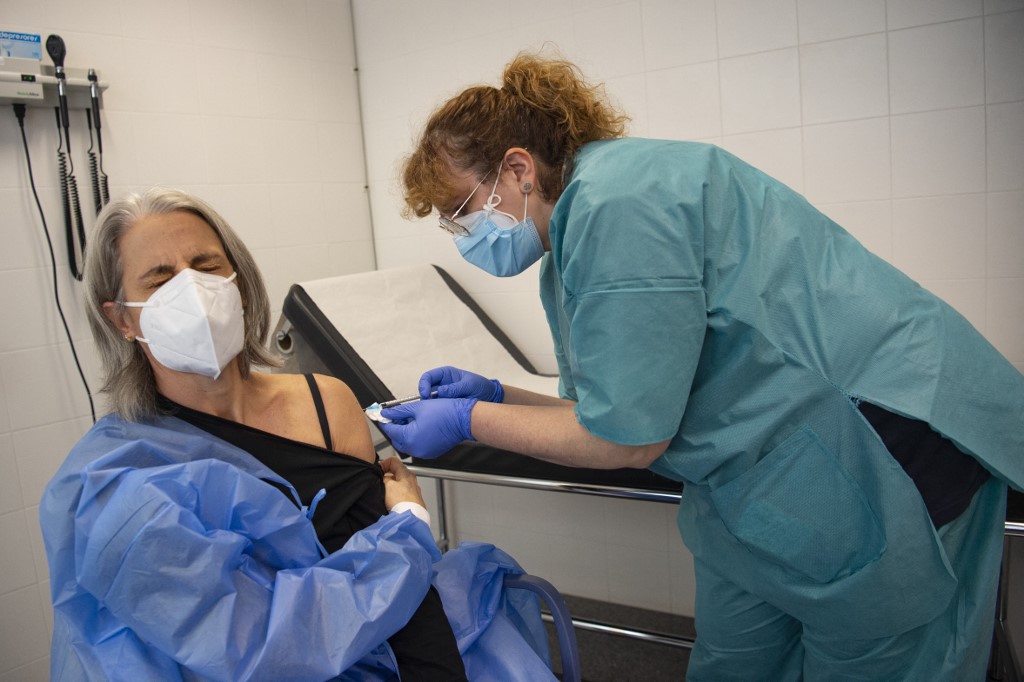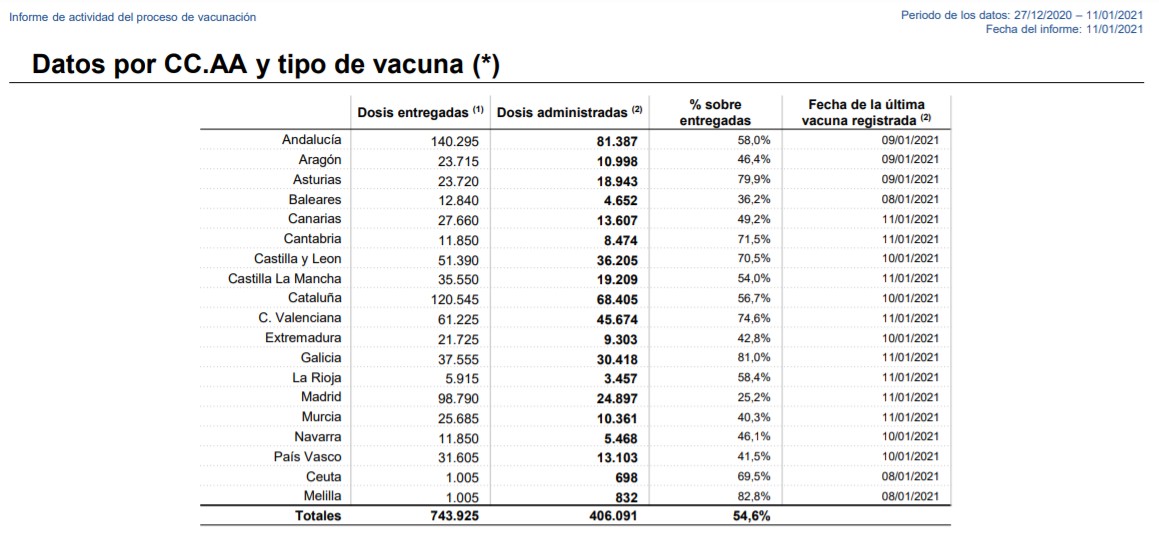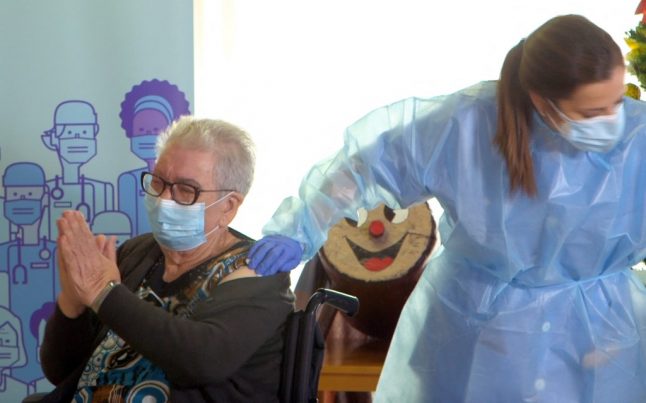Health Minister Salvador Illa announced the aim after Tuesday’s cabinet meeting insisting that the goal to protect those most vulnerable to the coronavirus would be met.
“We believe this week Spain will reach cruising speed in its vaccination plan,” Illa said.
“This weekend we continued vaccinating in many places, despite Storm Filomena,” he added.
READ ALSO:
- Beginning of the end: Spain predicts ‘herd immunity’ by summer's end
- Spain divides population into groups to prioritize for Covid-19 vaccine

Spain’s vaccination plan got off to a slow start after launching on December 27th but it has picked up and Health Ministry data shows 54.6 percent of available doses – 406,091 out of 743,925 – have already been administered across Spain.
Consulta el informe de actividad del proceso de vacunación frente al #COVID19 de hoy:
✔️Dosis distribuidas: 743.925
✔️Dosis administradas: 406.091Desglosado por CC.AA.⬇️https://t.co/tuq4DsRbcd
Toda la información sobre #VacunaCOVID19 ⬇️https://t.co/WBqrYhkzsu#YoMeVacuno pic.twitter.com/Ubvf4eOss5
— Salud Pública (@SaludPublicaEs) January 11, 2021
The efficacy of the vaccination programme differs across Spain’s 17 autonomous regions where regional health authorities are in charge of administering injections once they have been distributed by the central government.
Madrid is lagging behind with only 25 percent of the available doses given, while Galicia has already used over 80 percent of their allotted doses.
This chart produced by Spain’s Health Ministry shows a breakdown of all doses given across the regions:

From next week, health authorities will begin administering the second round of the double-dose Pfizer-BioNTech jab to the earliest recipients of the first shot before embarking on vaccination of the next priority group.
On Tuesday morning Spain took delivery of Moderna’s recently-approved vaccine under a plan that will see a total of 600,000 doses in Spain by the third week of February.
? Las primeras dosis de la vacuna #Moderna frente a la #COVID19 llegan a España. A las 8:00h, el camión que las transportaba desde Bélgica ha llegado al almacén del Ministerio
?En los próximos días las vacunas serán distribuidas de forma equitativa entre las CCAA#YoMeVacuno pic.twitter.com/3oCpybVRBE
— Ministerio de Sanidad (@sanidadgob) January 12, 2021
The latest data showed a surge in coronavirus infections over the weekend blamed on a loosening of restrictions over Christmas to allow people to meet up with their families.
READ MORE:
Spain calls on army convoys to send out Covid-19 vaccine and food supplies
Why is Spain's Covid-19 vaccine rollout going so slowly?



 Please whitelist us to continue reading.
Please whitelist us to continue reading.
Member comments